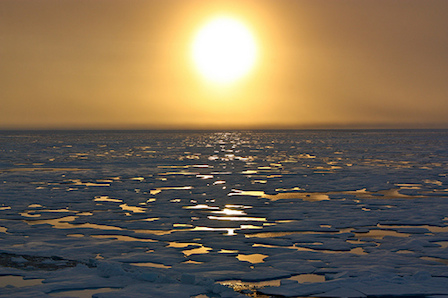Recent international research indicates that it is “extremely likely” that human actions have contributed to the Earth’s increasing temperature; scientists are now more convinced that people are largely responsible.
Researchers from the Intergovernmental Panel on Climate Change, a United Nations group known as IPCC, reviewed thousands of studies and determined with 95 to 100 percent certainty that people have had a big role in global warming.
This report’s conclusions are more confident of humanity’s role in climate change than the last IPCC assessment in 2007, which considered human activities to have “very likely” affected the climate.
Those activities include burning fossil fuels, which releases carbon dioxide into the atmosphere. The carbon dioxide remains trapped in the Earth’s atmosphere, which warms the planet. According to the report, carbon dioxide levels have increased by 40 percent within the last 260 years, which is when people started burning fossil fuels for energy.
During the last 60 years, “the atmosphere and ocean have warmed, the amounts of snow and ice have diminished, sea level has risen, and the concentrations of greenhouse gases have increased,” the IPCC reports.
The report predicts that it is also “very likely” that we will see increased melting of glaciers and Arctic sea ice during the remainder of the 21st century. A decrease of snow covering the ground in the Northern Hemisphere is expected. Sea levels are expected to continue rising, which will put low-lying islands and coastal communities at risk.
Climate change has been studied on a global scale since the 1950s. Scientists have collected data from satellites and on-the-ground instruments around the world. The IPCC researchers analyzed the collected measurements, as well as historical climate data (from ancient rocks) dating back millions of years.
The IPCC predicts that the Earth’s temperature will increase between 0.3 and 4.8 degrees Celsius (0.54 and 8.6 degrees Fahrenheit) between now and 2100.
Limiting further global warming “will require substantial and sustained reduction of greenhouse gas emissions,” said Thomas Stocker, a climate scientist who worked on the new IPCC report.
The IPCC also challenged a talking point made by those who harbor uncertainty concerning humanity’s role in global warming. These skeptics point to data from the last 15 years, which show that the rate of warming has leveled off. However, the IPCC insists that data from such a short duration is not sufficient to see the entire picture.
The latest IPCC report may be validating for those who believe people have negatively affected the Earth’s climate, but it does not ensure that human behavior will change. A radical shift in consciousness on a global scale may be necessary to halt (much less reverse) the effect that our species has had on the Earth’s climate.











